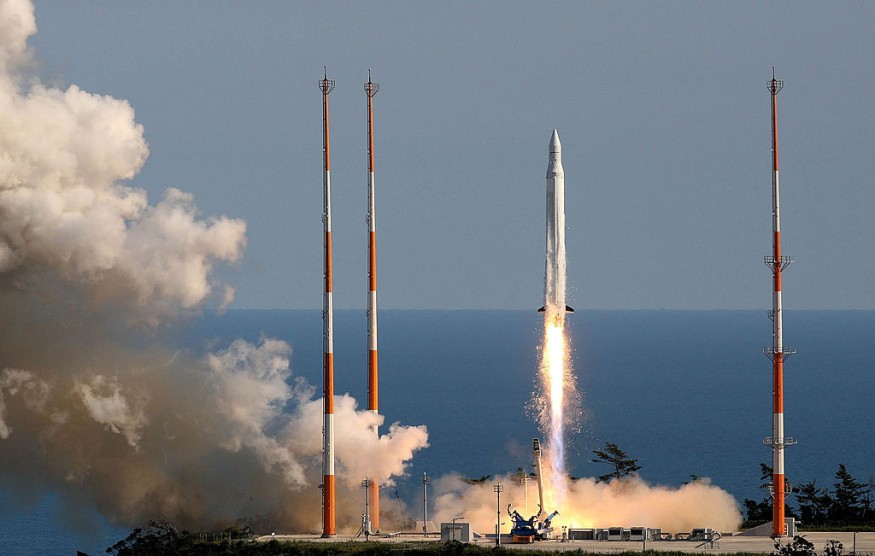South Korea has pledged to launch its first robotic lunar lander on a homegrown rocket by 2030.

The third and final test of the 200-ton rocket's four 75-ton liquid engines was completed successfully by the Korea Aerospace Research Institute.
At the Naro Space Center in Goheung province, the Korean space agency tested a rocket called Nuri. Nuri, the company's second debut, will take place in May of next year. It's the case. Its mission is to transport a 1.5-ton satellite.
KARI said the successful test placed the rocket on track to launch with a mock payload in October.
What is South Korea Trying to Do With Space Launch Vehicles?
Korea Portal said the nation has wanted to build locally produced space launch vehicles with a budget of nearly 2 trillion won ($1.8 billion) since 2010.
Seoul requested assistance from Russia for a satellite mission in 2013, according to UPI. The report referred to the KSLV 1 rocket, which was part-Russian and part-Korean and launched from Naro.
Due to delays in the construction of Nuri, including improvements in the assembly phase in the first stage and procurement delays, the government agreed last year to postpone the launch, which they initially scheduled for February.
The state-funded space institute partnered on the 500-kilogram satellite with a consortium of industry collaborators in 2015. They shared the key technology and information with the latter from the outset, marking the first time it has occurred.
South Korean Space Rocket: Here's What President Moon Jae-in Said
Following his onsite evaluation of the testing, South Korean President Moon Jae-in congratulated Korea Aerospace Research Institute on the country's achievement.
After the launch next year, South Korea's next target is to land on the Moon with its own projectile by 2030, Moon said per SpaceNews. The South Korean chief executive said that he wants local businesses to become leading aerospace manufacturers.
Moon emphasized the importance of the private sector in Korea's space exploration efforts. To that end, he claimed that the government would increase efforts to create an "innovative industrial environment that nurtures global space companies like SpaceX."
With a long-term ambition and unwavering will, Moon said South Korea would boldly invest in space production and reach into the space sector with scientists and engineers.
South Korean Space Rocket: Will They Make 6G Cellular Networks and Self-Driving Cars, Too?
In the run-up to the launch of 6G cellular networks, self-driving cars, and other goods and services supported or improved by satellites, the South Korean President also raised the question of improving the international competitiveness made-in-Korea satellite systems.
"We will continue to develop technological prowess by establishing a pilot network of communication satellites to usher in the 6G era, a Korean-engineered satellite navigation system essential for the autonomous vehicle and drone industries, and a nanosatellite constellation system to strengthen our space-related national defense," he said.
Moon's speech comes after his administration pledged in February to spend 615 billion Korean Won ($553.1 million) on space operations in 2021, to improve South Korea's ability to manufacture spacecraft, missiles, and other critical equipment.
RELATED ARTICLE : ULA Obtains Military Launch Contract Awards In Time of Billion-Dollar Military Satellite Arrival
Check out more news and information on Space on Science Times.
© 2026 ScienceTimes.com All rights reserved. Do not reproduce without permission. The window to the world of Science Times.











